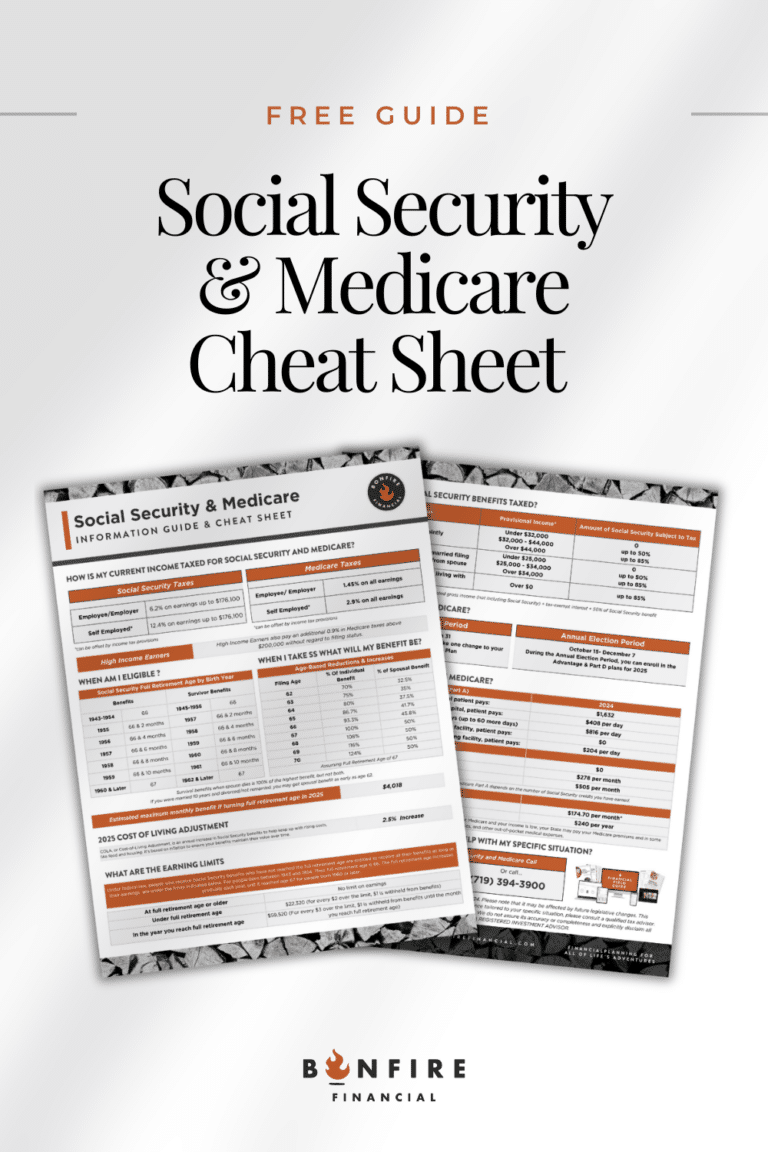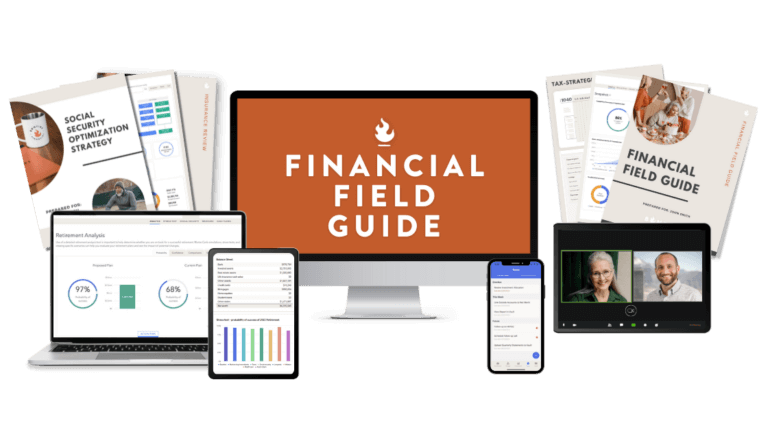Mastering Monthly Expenses in Retirement
Listen anywhere you stream Podcasts
iTunes | Spotify | iHeartRadio | Amazon Music
Transitioning from a regular paycheck to living off your savings in retirement can be a daunting experience, regardless of how much wealth you’ve accumulated over the years. Whether you’re trying to live off one million dollars or ten million, the challenge remains the same: maintaining the lifestyle you’ve become accustomed to without the comfort of a steady paycheck. One effective way to navigate this transition is by focusing on monthly expenses rather than looking at your finances annually. This approach not only aligns more closely with your pre-retirement habits but also provides a clearer picture of your financial health, making retirement planning more manageable and less stressful.
Why Focus on Monthly Expenses in Retirement?
Most people receive their income on a weekly, bi-weekly, or monthly basis during their working years. It’s rare for anyone to think about their income solely on an annual basis, except perhaps when filing taxes. So why do many financial plans for retirement suddenly shift to an annual focus? This change can create anxiety and confusion, making it harder to relate to your new financial reality. By focusing on monthly expenses in retirement, you replicate the income flow you’ve been accustomed to for years, making the transition from working to retirement feel less like a leap into the unknown and more like a familiar routine.
Simulating Your Paycheck: The Power of Familiarity
One effective strategy to make the transition from a paycheck to retirement income smoother is to simulate a paycheck. This involves setting up automatic transfers from your retirement accounts to your checking account on a regular basis, mimicking the way you used to receive your salary. By doing this, you maintain a sense of normalcy and structure in your financial life, which can significantly reduce anxiety.
The regularity of a monthly “paycheck” brings consistency. For many retirees, the predictability of seeing funds arrive in their bank account just like it did during their working years provides comfort and confidence. This consistency ensures that you can continue to cover your ongoing living expenses and plan for discretionary spending without the constant worry of outliving your savings.
Income Sources and Asset Management
Retirement income typically comes from various sources, including Social Security, pensions, investments, and savings. The key to managing your monthly expenses in retirement is to align these income sources with your budget. This may involve creating a withdrawal strategy from your retirement accounts that balances your need for monthly income with the desire to let your investments grow.
1. Social Security and Pensions: These are often the cornerstone of retirement income for many individuals. Understanding the timing and amount of these benefits can help establish a reliable baseline of income. For example, knowing when to take Social Security can significantly impact the amount you receive each month.
2. Investment Income: Interest from bonds, dividends from stocks, and returns from real estate investments can provide a steady stream of income. Managing your portfolio to ensure a consistent yield, even if market conditions fluctuate, is crucial for financial stability in retirement.
3. Withdrawals from Retirement Accounts: Drawing from 401(k)s, IRAs, or other retirement accounts can supplement other income sources. A strategic withdrawal plan—such as the 4% rule or a dynamic withdrawal method that adjusts based on market performance—can help ensure that your savings last throughout your retirement.
Flexibility for Life’s Ebb and Flow
While it’s important to have a consistent income strategy, retirement isn’t static. Life will bring changes, whether it’s a desire to travel more, unexpected health expenses, or new hobbies. Understanding that some months will naturally cost more than others allows you to maintain flexibility without feeling constrained by a rigid budget.
For example, you might find yourself spending more in the summer months if you enjoy traveling or hosting family gatherings. Conversely, your expenses might be lower in other months, creating a natural balance over the course of the year. Embracing this ebb-and-flow approach allows you to enjoy your retirement without the stress of constantly sticking to a strict budget.
Creating a Safety Net: Planning for the Unexpected
Life is unpredictable, and having a safety net is crucial. Emergencies such as home repairs, medical needs, or sudden travel can disrupt even the best-laid plans. Establishing an emergency fund specifically for retirement ensures that you have quick access to cash without needing to liquidate investments at inopportune times.
Building this fund before retirement can give you peace of mind, knowing that unexpected expenses won’t derail your financial stability. A good rule of thumb is to have three to six months’ worth of living expenses set aside in a liquid, easily accessible account.
The Psychological Benefits of Monthly Planning
Focusing on monthly expenses in retirement rather than annual figures can have psychological benefits. Seeing regular income hit your bank account can create a sense of security and stability. It replicates the regularity of a paycheck, reducing the anxiety that can come with managing large sums of money over long periods.
This approach also makes it easier to set short-term financial goals and monitor your progress. By breaking down your financial plan into manageable, monthly segments, you create a more straightforward and actionable framework that’s easier to stick with. This not only promotes better financial management but also helps maintain your peace of mind in retirement.
Adapting to Inflation and Long-Term Changes
Inflation is a reality that can erode your purchasing power over time. As you plan your monthly budget, it’s crucial to consider how inflation might impact your expenses. Even a modest inflation rate can significantly increase the cost of living over a long retirement. To counter this, your investment strategy should include growth assets that can potentially outpace inflation. Regularly reviewing your budget to account for inflation ensures that you maintain your lifestyle without depleting your savings too quickly.
Planning for the Later Years
Retirement is not static; it evolves over time. In the earlier years, you might be more active, traveling, and enjoying various recreational activities. As you age, your spending might shift towards healthcare and home maintenance. Understanding this shift can help you plan more effectively for the different stages of retirement. For example, while you may budget more for travel and entertainment early on, you might allocate more for healthcare costs as you move into your later years.
Regular Reviews: A Key to Staying on Track
Just like in your working years, regular financial check-ups are important. Annual or semi-annual reviews of your retirement plan can help you adjust your strategy as needed. These reviews should consider changes in your lifestyle, health, and financial markets, ensuring that your plan remains aligned with your goals and needs.
Adjusting your withdrawal rates, rebalancing your investment portfolio, and updating your monthly income targets based on these reviews can help keep your retirement plan on track. Staying proactive rather than reactive will allow you to make informed decisions rather than being forced to make changes under stress.
Conclusion
Transitioning into retirement is a significant life change, but by focusing on monthly expenses, you can make this shift with confidence and peace of mind. Understanding your spending habits, creating a realistic budget, simulating a paycheck, and maintaining flexibility for life’s surprises are key steps to mastering your finances in retirement. Remember, the goal is to maintain the lifestyle you’ve worked so hard to achieve, without the stress and worry that can come from financial uncertainty. By taking a monthly approach to your retirement planning, you’re not only managing your money effectively but also ensuring that you can enjoy your retirement years to the fullest.
Mastering monthly expenses is not just about numbers; it’s about maintaining the quality of life you desire, feeling secure in your financial decisions, and having the freedom to enjoy the fruits of your labor without constant financial stress.
Next Steps:
If you are wondering when you can retire, or if you’re ready to take control of your retirement planning and want to ensure a smooth transition into this next chapter of life, we’re here to help. Schedule a free consultation call with us today, and let’s create a personalized plan tailored to your unique needs and goals. At Bonfire Financial, our team of CERTIFIED FINANCIAL PLANNER™ professionals are dedicated to helping you enjoy a financially secure and stress-free retirement. Reach out today!
 Client Login
Client Login







